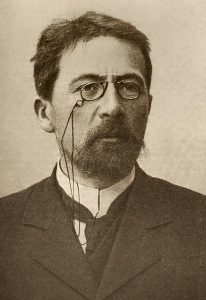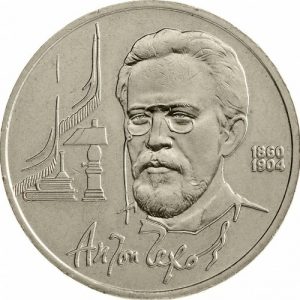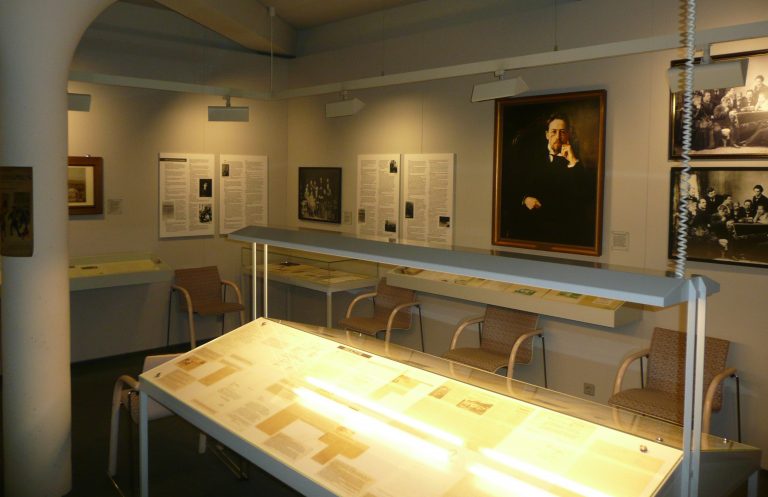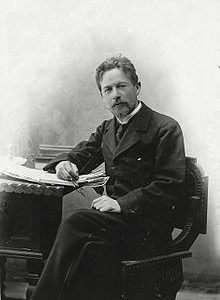
Anton Pavlovich Chekhov (Russian: Антон Павлович Чехов[note 1], IPA: [ɐnˈton ˈpavləvʲɪtɕ ˈtɕexəf]; 29 January 1860[note 2] – 15 July 1904[note 3]) was a Russian playwright and short-story writer who is considered to be one of the greatest writers of all time. His career as a playwright produced four classics, and his best short stories are held in high esteem by writers and critics.[4][5] Along with Henrik Ibsen and August Strindberg, Chekhov is often referred to as one of the three seminal figures in the birth of early modernism in the theatre.[6] Chekhov was a physician by profession. “Medicine is my lawful wife”, he once said, “and literature is my mistress.”
Anton Pavlovich Chekhov (Russian: Антон Павлович Чехов[note 1], IPA: [ɐnˈton ˈpavləvʲɪtɕ ˈtɕexəf]; 29 January 1860[note 2] – 15 July 1904[note 3]) was a Russian playwright and short-story writer who is considered to be one of the greatest writers of all time. His career as a playwright produced four classics, and his best short stories are held in high esteem by writers and critics.[4][5] Along with Henrik Ibsen and August Strindberg, Chekhov is often referred to as one of the three seminal figures in the birth of early modernism in the theatre.[6] Chekhov was a physician by profession. “Medicine is my lawful wife”, he once said, “and literature is my mistress.”[7]
Anton Pavlovich Chekhov (Russian: Антон Павлович Чехов[note 1], IPA: [ɐnˈton ˈpavləvʲɪtɕ ˈtɕexəf]; 29 January 1860[note 2] – 15 July 1904[note 3]) was a Russian playwright and short-story writer who is considered to be one of the greatest writers of all time. His career as a playwright produced four classics, and his best short stories are held in high esteem by writers and critics.[4][5] Along with Henrik Ibsen and August Strindberg, Chekhov is often referred to as one of the three seminal figures in the birth of early modernism in the theatre.[6] Chekhov was a physician by profession. “Medicine is my lawful wife”, he once said, “and literature is my mistress.”[7]



